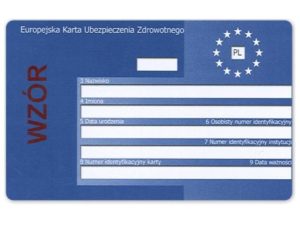CURRANCY POLAND
 CURRANCY POLAND
CURRANCY POLAND
The złoty (Polish: [ˈzwɔtɨ] (listen);[3] abbreviation: zł; code: PLN) is the official currency and legal tender of Poland. It is subdivided into 100 grosz (gr).[a] The widely recognised English form of the currency name is the Polish zloty.[4] It is the most traded currency in Central and Eastern Europe and ranks 21st most-traded in the foreign exchange market.[5][6]
The word złoty is a masculine form of the Polish adjective ‘golden’, which closely relates with its name to the guilder whereas the grosz subunit was based on the groschen, cognate to the English word groat. It was officially introduced to replace its predecessor, the Polish mark, on 28 February 1919 and began circulation in 1924. The only body permitted to manufacture or mint złoty coins is Mennica Polska, founded in Warsaw on 10 February 1766.
As a result of inflation in the early 1990s, the currency underwent redenomination. Thus, on 1 January 1995, 10,000 old złoty (PLZ) became one new złoty (PLN). Since then, the currency has been relatively stable, with an exchange rate fluctuating between 4 and 5 złoty for a euro. As a member of the European Union, Poland is obligated to eventually adopt the euro. As of 2022, polling suggests nearly 60% of Poles support replacing the złoty.
HEALT INSURANCE POLAND

As a tourist or expat in Poland, it’s essential to have health insurance to ensure that you can access medical care in case of illness or injury. There are several types of health insurance available in Poland, each with its advantages and disadvantages. Here are some of the most common options:
- National Health Fund (NFZ) – If you are a citizen or resident of Poland, you are entitled to free healthcare through the National Health Fund. However, as a tourist or expat, you will not be eligible for this service.
- Private Health Insurance – Private health insurance is an excellent option for expats and tourists in Poland. Private health insurance offers a wide range of medical services, including specialist consultations, diagnostic tests, and hospital stays. Private health insurance also provides additional benefits, such as dental care, optical care, and emergency assistance.
- Travel Insurance – If you are a tourist in Poland, you can purchase travel insurance to cover medical emergencies during your stay. Travel insurance policies typically cover emergency medical expenses, hospitalization, and repatriation to your home country. However, travel insurance policies may not cover pre-existing conditions, and coverage limits can vary.
- International Health Insurance – International health insurance provides comprehensive coverage for expats and frequent travelers. This type of insurance covers medical expenses, including routine checkups, specialist consultations, diagnostic tests, and hospitalization. International health insurance also includes additional benefits, such as dental care, optical care, and emergency assistance.
https://ec.europa.eu/social/main.jsp?catId=653&langId=en&furtherVideos=yes



